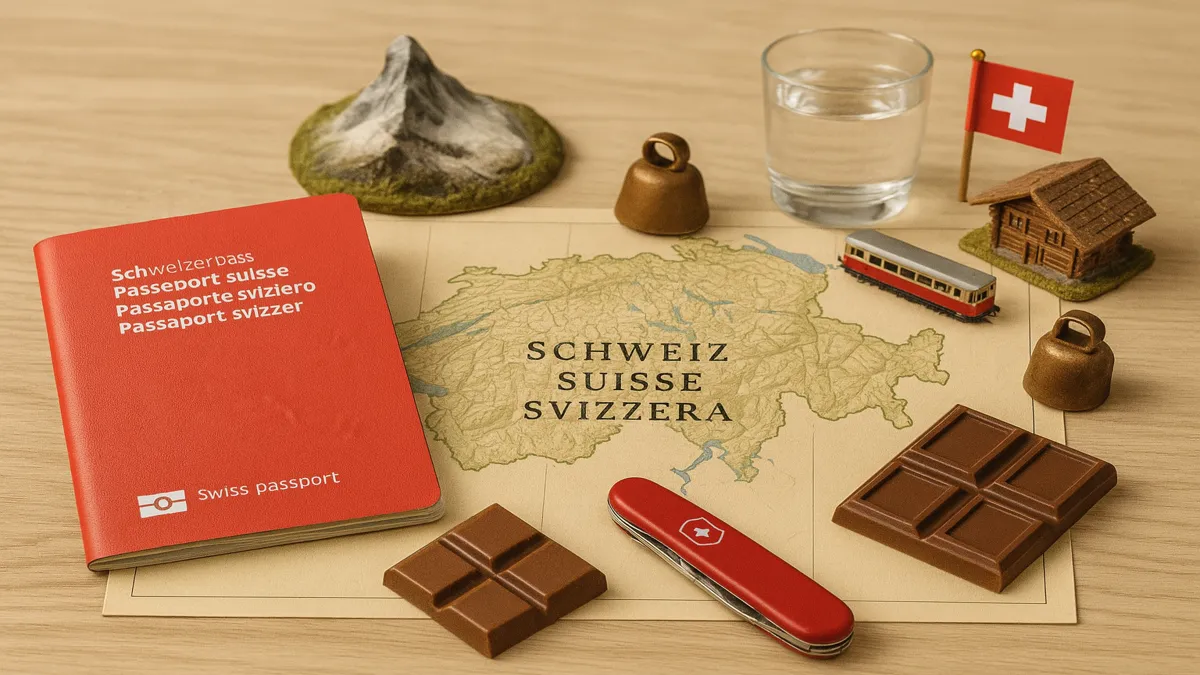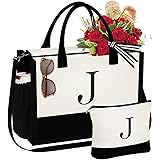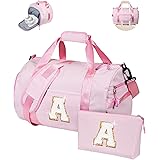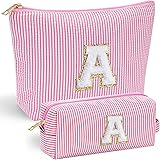Switzerland Travel Guide 2025: The Ultimate Handbook for First-Time Visitors
Planning your first adventure to Switzerland in 2025? You’ve picked an absolutely breathtaking destination! This ultimate guide is packed with everything you need to know to make your trip unforgettable. From soaring alpine peaks and pristine lakes to charming medieval towns and efficient train rides, we’ve got you covered.
Switzerland offers a unique blend of stunning natural beauty, precision engineering, rich cultural diversity, and a famously high quality of life. It’s a country that captivates every traveler, whether you’re hiking through lush valleys, skiing down powdery slopes, or simply enjoying a delicious fondue with a panoramic view.
Get ready to discover why Switzerland is consistently ranked among the world’s most desirable travel destinations. Let’s dive into the essential tips that will help you plan, budget, and experience the very best of this amazing country.
Table of Contents
- 1. Why 2025 Is the Best Year to Visit Switzerland
- 2. Best Time to Travel by Season
- 3. Top Destinations for First-Time Visitors
- 4. Where to Stay: Budget to Luxury
- 5. First-Time in Switzerland: What You Need to Know
- 6. Solo Travel in Switzerland
- 7. Traveling Switzerland with Family or as a Senior
- 8. Digital Nomads in Switzerland
- 9. How Much Does a Trip to Switzerland Cost?
- 10. Getting Around: Trains, Buses, Cars
- 11. Must-Try Foods and Cultural Tips
- 12. Sample Itineraries in our Switzerland Travel Guide
- 13. Travel Tools, Resources & Safety
- 14. FAQs for First-Time Visitors
- 15. What’s Next? More Guides to Explore
1. Why 2025 Is the Best Year to Visit Switzerland
2025 presents a truly fantastic opportunity for your inaugural Swiss adventure. The country’s commitment to sustainable tourism and its pristine natural environment make it an ever-appealing choice. You’ll find a perfect blend of timeless traditions and cutting-edge innovation.
Switzerland continues to charm with its iconic mountains, crystal-clear lakes, and charming villages. Yet, it also embraces modernity with world-class cities, innovative architecture, and a forward-thinking approach to environmental protection. This dynamic mix ensures there’s always something new to discover, even in a country known for its classic beauty.
Moreover, the Swiss are renowned for their efficiency, safety, and multilingual hospitality, making communication and navigation effortless for international travelers. This ease of interaction significantly enhances the travel experience, especially for first-time visitors who might be intimidated by a new country.
Crucially for first-time visitors, the implementation of the European Travel Information and Authorisation System (ETIAS), which would require pre-travel authorization for visa-exempt visitors to the Schengen Area, has been delayed. While the Entry/Exit System (EES) is expected to launch in October 2025, ETIAS is now projected to begin in late 2026. This means that for your 2025 trip, the current visa-exempt entry rules will remain in effect, simplifying your pre-trip preparations.
2. Best Time to Travel by Season
Choosing the right time to visit Switzerland can significantly impact your experience. While each season offers unique charms, some periods are generally more favorable for first-time visitors, depending on their interests.
Spring (April to May )
- Pros: Pleasant weather, blooming landscapes, fewer crowds than summer, and lower prices. Ideal for hiking in lower altitudes and enjoying city breaks.
- Cons: Higher mountain passes might still be closed due to snow. Weather can be unpredictable, with a mix of sunny days and rain.
- Regional Nuances: Temperatures typically range from 8-18°C (46-64°F). Lower valleys are green, while higher peaks remain snow-capped.
- Best For: Sightseeing, city breaks, enjoying nature, and experiencing the transition from winter to summer.
Summer (June to August)
- Pros: Warmest weather, long daylight hours, and access to all hiking trails and mountain excursions. Vibrant atmosphere with numerous outdoor festivals.
- Cons: Peak tourist season means larger crowds, higher prices, and popular attractions can be very busy.
- Regional Nuances: Temperatures typically range from 18-28°C (64-82°F). Alpine regions are cooler, while cities can get quite warm.
- Best For: Hiking, mountaineering, lake activities, paragliding, and experiencing the lively summer culture.
Autumn (September to October)
- Pros: Milder temperatures, diminishing crowds, beautiful golden landscapes, and often better value. Ideal for hiking and enjoying the last of the warm weather.
- Cons: Days get shorter, and weather becomes cooler, especially towards late autumn. Some mountain transport might close for maintenance.
- Regional Nuances: Temperatures typically range from 10-20°C (50-68°F) in early autumn, cooling down to 5-12°C (41-54°F) by October.
- Best For: Hiking, photography, wine tasting (in regions like Lavaux), and cultural exploration.
Winter (November to March)
- Pros: World-class skiing and snowboarding, festive Christmas markets, fewer tourists (outside ski resorts), and a cozy atmosphere. The chance of heavy snow creates stunning scenery.
- Cons: Cold temperatures, shorter daylight hours, and some non-ski attractions might have reduced hours or be closed.
- Regional Nuances: Temperatures typically range from -5-5°C (23-41°F), with much colder temperatures in higher altitudes.
- Best For: Skiing, snowboarding, Christmas markets, cozy city breaks, and experiencing a different, quieter side of Switzerland.
Recommendation for First-Timers: For a balanced experience with good weather and manageable crowds, consider late spring (May-early June) or early autumn (September-October). These shoulder seasons offer the best of Switzerland without the intense summer crowds or winter chill, and often at slightly better prices.
3. Top Destinations for First-Time Visitors
For your first Swiss adventure, it’s wise to choose destinations that offer a blend of iconic sights, ease of navigation, and a welcoming atmosphere. These places are popular for a reason – they provide an excellent introduction to Switzerland’s diverse cultures and landscapes.
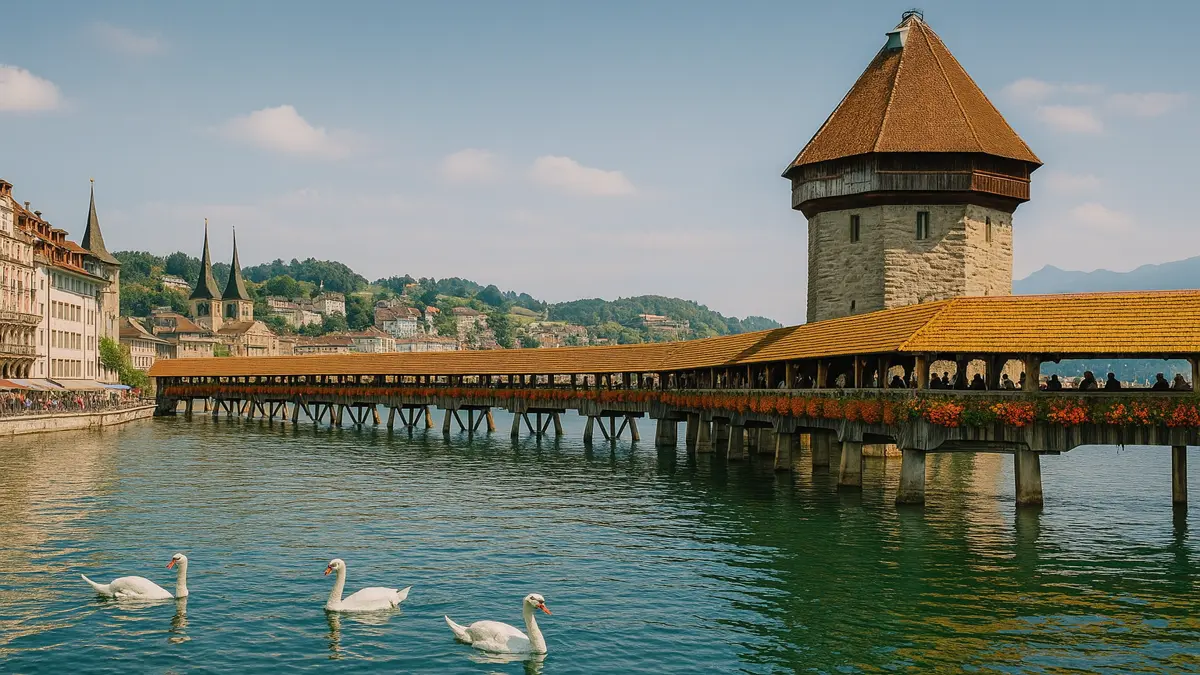
Zurich: Financial Hub & Lakeside Charm
Switzerland’s largest city, Zurich, offers a vibrant urban experience with a beautiful Old Town, world-class museums, and a stunning lakeside setting. It’s a fantastic starting point, with excellent transport links. Don’t miss a stroll along Bahnhofstrasse or a boat trip on Lake Zurich.
Lucerne: Medieval Beauty & Mountain Views
Nestled by Lake Lucerne and surrounded by mountains, Lucerne is incredibly picturesque. Explore the Chapel Bridge, Lion Monument, and take a boat trip to Mount Pilatus or Rigi for breathtaking alpine panoramas. It’s a perfect blend of city charm and natural beauty.
Interlaken & Jungfrau Region: Alpine Adventure Capital
The gateway to the Jungfrau Region, Interlaken is an adventure hub. From here, access stunning mountain villages like Lauterbrunnen (Valley of 72 Waterfalls ), Grindelwald, and the “Top of Europe” at Jungfraujoch. Ideal for hiking, paragliding, and experiencing the high Alps.
Zermatt: Iconic Matterhorn & Car-Free Bliss
Home to the majestic Matterhorn, Zermatt is a car-free village offering unparalleled mountain views and world-class skiing/hiking. Reachable only by train, it provides a unique, tranquil alpine experience.
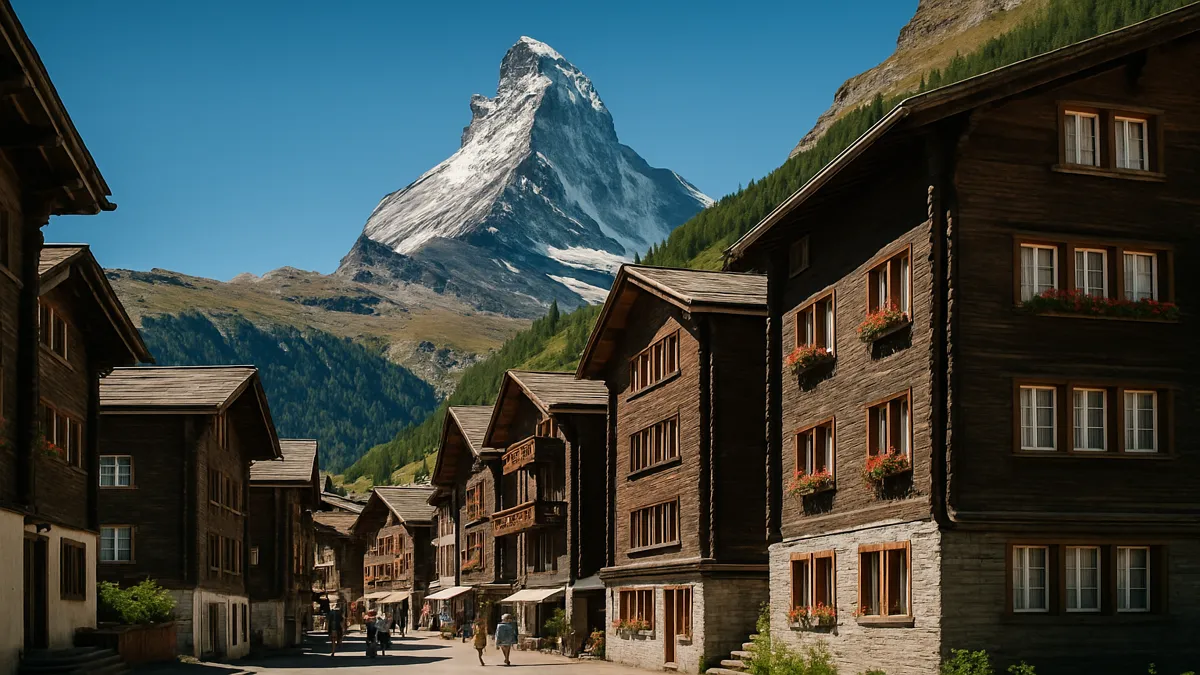
Geneva: International City & Lakeside Elegance
Located on the shores of Lake Geneva, this international city is home to numerous global organizations. Explore the Jet d’Eau, the Old Town, and enjoy the cosmopolitan atmosphere. It’s a great base for exploring the French-speaking part of Switzerland.
Lausanne & Montreux: Olympic Spirit & Lavaux Vineyards
On the northern shore of Lake Geneva, Lausanne is a vibrant university city and home to the Olympic Museum. Nearby Montreux boasts a beautiful promenade and Chillon Castle. The terraced Lavaux vineyards (UNESCO World Heritage) offer stunning views and wine tasting.
Bern: Charming Capital & UNESCO Old Town
Switzerland’s capital, Bern, boasts a beautifully preserved medieval Old Town, a UNESCO World Heritage site. Explore its arcaded streets, the Zytglogge clock tower, and the Bear Park. It’s a relaxed and charming city.
4. Where to Stay: Budget to Luxury
Switzerland offers a vast array of accommodation options to suit every budget and travel style. Understanding the different types will help you choose the best fit for your trip.
Hostels: Budget-Friendly & Social
- Best For: Budget travelers, solo travelers, and those looking to meet other people.
- What to Expect: Dormitory rooms (mixed or single-sex ) with bunk beds, shared bathrooms, and common areas (kitchens, lounges). Many also offer private rooms.
- Pros: Cheapest option, great for socializing, often centrally located.
- Cons: Less privacy, potential for noise, shared facilities.
Guesthouses/B&Bs: Local Charm
- Best For: Travelers seeking privacy and basic amenities without breaking the bank, often with a more personal touch.
- What to Expect: Private rooms with en-suite or shared bathrooms. Often family-run, offering a traditional Swiss breakfast.
- Pros: More privacy than hostels, often charming and locally authentic, good value.
- Cons: Fewer amenities than larger hotels, can still be basic.
Mid-Range Hotels: Comfort & Convenience
- Best For: Travelers looking for comfort, convenience, and a good balance of price and amenities.
- What to Expect: Private rooms with en-suite bathrooms, often include breakfast, Wi-Fi, and sometimes a gym or restaurant.
- Pros: Reliable quality, good service, comfortable.
- Cons: Can be less characterful than independent options.
Luxury Hotels: Premium Experience
- Best For: Travelers prioritizing comfort, service, and high-end amenities.
- What to Expect: Spacious rooms, premium bedding, concierge service, fine dining restaurants, spas, pools, and often prime locations with stunning views.
- Pros: Exceptional service, luxurious experience, all amenities at your fingertips.
- Cons: Very expensive, especially in popular alpine resorts.
Apartments/Vacation Rentals (e.g., Airbnb): Home Away From Home
- Best For: Families, groups, long-term travelers, or those who prefer a local experience and self-catering.
- What to Expect: Fully furnished apartments or chalets, often with kitchens and living areas.
- Pros: More space, privacy, ability to cook your own meals (saving money), authentic local feel.
- Cons: Less service than hotels, check-in can be less flexible, potential for hidden fees.
Booking Tips:
- Book in Advance: Especially for peak season or popular destinations, booking 3-6 months ahead can secure better prices and availability.
- Read Reviews: Always check recent reviews on multiple platforms (Google, Booking.com, TripAdvisor) to get a balanced view.
- Location is Key: Prioritize accommodation near public transport hubs or within walking distance of major attractions to save time and money on commuting.
- Check Cancellation Policies: Opt for flexible cancellation policies, especially if your plans might change.
Looking for the best hotel or flight deals?
Plan your trip with ease using the Expedia search tool below. From charming boutique hotels to luxury resorts, this widget helps you compare top options in seconds — flights included!
5. First-Time in Switzerland: What You Need to Know
Navigating a new country can feel daunting, but a little preparation goes a long way. Here’s what every first-timer needs to know for a smooth Swiss journey.
Visa & Entry Requirements (ETIAS Update for 2025 )
- Schengen Area: Switzerland is part of the Schengen Area, allowing visa-free travel for up to 90 days within any 180-day period for many nationalities (e.g., US, Canadian, Australian, UK citizens).
- ETIAS Delay: As of 2025, the European Travel Information and Authorisation System (ETIAS) is not yet in effect. It is now projected to launch in late 2026. This means that for your 2025 trip, if you are from a visa-exempt country, you will not need to apply for ETIAS.
- Passport Validity: Ensure your passport is valid for at least six months beyond your intended departure date from the Schengen Area.
Currency & Money
- Swiss Franc (CHF): The currency in Switzerland is the Swiss Franc. While Euros are sometimes accepted in tourist areas, change will almost always be given in CHF.
- Credit/Debit Cards: Widely accepted everywhere, especially Visa and Mastercard. Inform your bank of your travel plans to avoid card freezes. Look for cards with no foreign transaction fees.
- ATMs (Bancomat/Geldautomat): Readily available. Withdraw cash from bank ATMs to avoid excessive fees.
- Carrying Cash: It’s wise to carry a small amount of local currency for small purchases, local markets, or places that don’t accept cards (e.g., some smaller mountain huts or independent shops).
- Tipping: Service charges are usually included in the bill. Tipping is not obligatory but appreciated for good service; rounding up the bill or leaving 5-10% is common.
Language & Communication
- Multilingual: Switzerland has four official languages: German, French, Italian, and Romansh. The language spoken depends on the region you are in.
- English Proficiency: Almost everyone speaks excellent English, especially in tourist areas, hotels, and among younger generations.
- Basic Phrases: While English is primary, a polite “Grüezi” (hello in Swiss German), “Bonjour” (hello in French), “Grazie” (thank you in Italian), and “Danke” (thank you in German) goes a long way.
- Directness: The Swiss are known for being very direct and punctual.
Cultural Etiquette
- Punctuality: The Swiss value punctuality highly. Be on time for appointments or reservations.
- Orderliness & Cleanliness: Switzerland is exceptionally clean and organized. Respect public spaces and dispose of waste properly.
- Hiking Etiquette: Greet fellow hikers on trails. Stay on marked paths.
- Recycling: The Swiss are very serious about recycling. Follow local guidelines.
Safety & Scams
- General Safety: Switzerland is one of the safest countries in the world. Violent crime is extremely rare.
- Pickpocketing: Can occur in crowded tourist areas (e.g., train stations, major city centers). Be vigilant and keep valuables secure.
- Scams: Be aware of common tourist scams. Politely but firmly decline and walk away.
- Emergency Numbers: The universal emergency number in Switzerland (and Europe) is 112 for police, ambulance, and fire services. Other direct numbers: Police 117, Fire 118, Ambulance 144.
Connectivity
- SIM Cards/eSIMs: Consider purchasing a local SIM card (e.g., Swisscom, Sunrise, Salt) or an eSIM for affordable data and calls. This is often cheaper than international roaming.
- Wi-Fi: Widely available in hotels, cafes, restaurants, and public spaces.
Packing Essentials
- Universal Adapter: Essential for charging your electronics. Switzerland uses Type J plugs (three round pins). Type C (two round pins) also fits.
- Comfortable Walking/Hiking Shoes: Absolutely essential, even for city exploration.
- Layered Clothing: Swiss weather can change rapidly, especially in the mountains. Layers are key. A waterproof jacket is a must.
- Reusable Water Bottle: Stay hydrated and reduce plastic waste. Tap water is safe to drink and delicious.
- Sunscreen & Sunglasses: Even in winter, the sun’s reflection off snow can be intense.
- Small First-Aid Kit: For minor cuts, headaches, etc.
- Copies of Documents: Keep digital and physical copies of your passport, visa (if applicable), and travel insurance.
6. Solo Travel in Switzerland
Switzerland is an incredibly rewarding destination for solo travelers, offering freedom, flexibility, and endless opportunities for self-discovery. It’s one of the safest countries in the world, making it particularly appealing for those traveling alone.
Safety First
- Research Accommodation: Choose well-reviewed hostels or hotels in safe neighborhoods. Many hostels offer female-only dorms.
- Be Aware of Your Surroundings: Especially at night or in crowded areas. Trust your instincts.
- Share Your Itinerary: Let a friend or family member know your plans.
- Emergency Contacts: Keep local emergency numbers (112) and your embassy’s contact info handy.
Meeting People
- Hostels: Stay in hostels with good common areas and social events.
- Walking Tours: A great way to see a city and meet fellow travelers. Many cities offer free walking tours.
- Hiking Trails: You’ll often encounter other hikers on popular trails, providing opportunities for brief chats.
- Public Transport: Strike up conversations on trains or cable cars.
Embrace Solitude
Enjoy the freedom of setting your own pace, lingering at a scenic viewpoint, or simply people-watching with a coffee. Switzerland’s natural beauty is perfect for quiet contemplation.
Budgeting for One
Be mindful of single supplements for tours or accommodation. Hostels and self-catering apartments can be more budget-friendly. Utilizing the Swiss Travel Pass is an excellent way to manage transport costs.
7. Traveling Switzerland with Family or as a Senior
Switzerland caters wonderfully to all ages, but specific considerations can enhance trips for families and senior travelers. Its excellent infrastructure and focus on quality make it a comfortable destination for everyone.
Traveling with Family
- Kid-Friendly Attractions: Switzerland offers numerous parks, interactive museums (e.g., Swiss Transport Museum in Lucerne), and child-friendly activities (e.g., chocolate factories, adventure parks, easy hiking trails).
- Accommodation: Apartments or hotels with family rooms/suites often provide more space and convenience. Consider places with kitchenettes to prepare some meals.
- Transportation: Public transport is generally excellent for families. Children under 6 travel free with a paying adult on most SBB services. The Swiss Travel Pass offers family benefits.
- Pacing: Don’t overschedule. Allow for downtime, playgrounds, and spontaneous exploration.
- Packing: Bring familiar snacks, comfort items, and any necessary medications.
Traveling as a Senior
- Accessibility: Switzerland is generally very accessible. Research accessibility for attractions and public transport, especially if mobility is a concern. Trains, cable cars, and funiculars are well-equipped.
- Pacing: Opt for a slower pace. Choose fewer destinations and spend more time in each to avoid rushing.
- Discounts: While there isn’t a universal senior discount, some attractions or transport options might offer reduced fares. Always inquire.
- Medical Considerations: Carry all necessary medications in their original packaging. Consider travel insurance that covers pre-existing conditions.
- Comfort: Prioritize comfortable shoes and easy-to-access accommodation. Consider guided tours for convenience.
8. Digital Nomads in Switzerland
While Switzerland is known for its high cost of living, its stunning landscapes, high quality of life, excellent infrastructure, and central European location make it an attractive, albeit aspirational, destination for digital nomads. It doesn’t have a specific “digital nomad visa” like some EU countries, so entry is typically via standard visa routes.
Visa Considerations
For stays longer than 90 days, you’ll need a specific visa (e.g., a work permit if sponsored by a Swiss employer, or a student visa). The standard tourist visa does not permit working. Research Swiss immigration requirements thoroughly.
Best Cities for Nomads (Considering Cost)
- Zurich/Geneva: Global hubs with endless opportunities, co-working spaces, and diverse communities. Very high cost of living.
- Bern/Lucerne: Offer a slightly lower cost of living than Zurich/Geneva while still providing excellent amenities and a high quality of life.
- Smaller Towns: Exploring options in smaller towns might offer more affordable living, but with fewer co-working spaces and a smaller expat community.
Connectivity
Switzerland boasts some of the best internet infrastructure in the world, with widespread high-speed broadband and 5G mobile networks. Connectivity will never be an issue.
Cost of Living
This is the primary challenge for digital nomads in Switzerland. It is consistently ranked among the most expensive countries globally. Careful budgeting and seeking out local deals are essential.
Co-working Spaces
Abundant in major cities, offering flexible memberships and networking opportunities.
Community
Large expat communities exist in major cities, making it easier to connect with like-minded individuals.
9. How Much Does a Trip to Switzerland Cost?
Switzerland has a reputation for being expensive, and it’s largely true. However, with smart planning and budgeting, you can still have an incredible trip without completely breaking the bank. Here’s a breakdown of typical costs for 2025:
Accommodation (per person, per night)
- Budget (Hostels, Alpine Huts): CHF 40-80 (approx. $45-90 USD)
- Mid-Range (3-star hotels, Guesthouses): CHF 120-250 (approx. $135-280 USD)
- Luxury (4-5 star hotels, Resorts): CHF 250+ (approx. $280+ USD)
Food (per person, per day)
- Budget (Supermarket, picnic, street food): CHF 30-50 (approx. $33-55 USD)
- Mid-Range (Casual restaurants, pub meals): CHF 60-100 (approx. $67-110 USD)
- High-End (Fine dining): CHF 100+ (approx. $110+ USD)
Transportation (per day, average)
- Swiss Travel Pass (average daily cost for 8-day pass): CHF 50-70 (approx. $55-78 USD) – highly recommended for extensive travel.
- Individual Tickets: Can be very expensive for long distances.
- Local Public Transport (cities): CHF 8-15 (approx. $9-17 USD)
Activities & Sightseeing (per day, average)
- Budget (Free hikes, city walks): CHF 0-20 (approx. $0-22 USD)
- Mid-Range (Museums, some mountain excursions): CHF 40-80 (approx. $45-90 USD)
- High-End (Major mountain tops like Jungfraujoch, skiing): CHF 100-200+ (approx. $110-220+ USD)
Estimated Daily Budget (per person)
- Budget Traveler: CHF 120-180 (approx. $135-200 USD) – staying in hostels, cooking some meals, free/cheap activities, Swiss Travel Pass.
- Mid-Range Traveler: CHF 250-400 (approx. $280-450 USD) – mid-range hotels, eating out, some paid attractions, Swiss Travel Pass.
- Luxury Traveler: CHF 450+ (approx. $500+ USD) – luxury hotels, fine dining, extensive activities.
Money-Saving Tips
- Swiss Travel Pass: This is often the single best investment. It covers unlimited travel on trains, buses, and boats, and includes free entry to over 500 museums and discounts on most mountain excursions. Calculate if it makes sense for your itinerary.
- Cook Your Own Meals: If staying in accommodation with kitchen facilities, buying groceries from supermarkets (Coop, Migros, Lidl, Aldi) can significantly cut down food costs.
- Picnics: Enjoy the stunning scenery with a packed lunch instead of expensive restaurant meals.
- Tap Water: Drink tap water – it’s excellent and free.
- Free Activities: Focus on hiking, exploring charming towns, and enjoying the natural beauty, which is often free.
- Lunch Deals: Look for “Menu du Jour” or “Tagesmenu” in restaurants for more affordable lunch options.
- Avoid Tourist Traps: Restaurants and shops directly in major tourist hotspots tend to be more expensive.
10. Getting Around: Trains, Buses, Cars
Switzerland boasts one of the most efficient, punctual, and comprehensive public transportation networks in the world. It’s so good, you often don’t need a car!
Trains (SBB – Swiss Federal Railways )
- Pros: The backbone of Swiss transport. Fast, comfortable, incredibly scenic, and connect virtually every town and city, and even many mountain villages. Punctuality is legendary.
- Cons: Can be expensive for individual tickets if not using a pass.
- Booking: The SBB Mobile app is excellent for planning journeys and buying tickets. For passes, purchase before you arrive.
- Swiss Travel Pass: Highly recommended for most tourists. Offers unlimited travel on trains, buses, and boats, free entry to museums, and discounts on mountain railways/cable cars.
Buses (PostBus Switzerland )
- Pros: Complement the train network, reaching even the most remote villages and mountain passes. Often bright yellow and very distinctive.
- Cons: Slower than trains for long distances.
- Coverage: Included in the Swiss Travel Pass.
Boats
- Pros: A beautiful and relaxing way to travel on Switzerland’s many lakes (e.g., Lake Lucerne, Lake Geneva, Lake Thun). Offers stunning perspectives of the surrounding landscapes.
- Coverage: Included in the Swiss Travel Pass.
Mountain Transport (Cable Cars, Funiculars, Cogwheel Trains)
- Pros: Essential for reaching many of Switzerland’s iconic mountain peaks and viewpoints. Offers incredible panoramic views.
- Cons: Can be very expensive individually.
- Discounts: Often discounted with the Swiss Travel Pass or other regional passes.
Driving
- Pros: Offers maximum flexibility, especially for exploring very remote areas or specific scenic drives at your own pace.
- Cons: Driving is on the right side of the road. Roads can be winding in the mountains. Parking can be expensive and difficult in cities. Fuel is costly. Public transport is often faster and more relaxing.
- Vignette: If renting a car in Switzerland, it will likely have the annual motorway vignette (sticker) required for using Swiss motorways. If renting from a neighboring country, ensure you purchase one at the border (CHF 40).
- Rental: Major car rental companies are available at airports and city centers. Ensure you have an international driving permit if required by your home country.
Recommendation: For most first-time visitors, relying on Switzerland’s public transport network (especially with a Swiss Travel Pass) is the most efficient, cost-effective, and stress-free way to explore the country. You’ll enjoy the scenery without the hassle of driving or parking.
11. Must-Try Foods and Cultural Tips
Switzerland’s culinary scene is a delightful blend of its diverse linguistic regions, offering hearty, comforting dishes perfect for an alpine climate. Prepare your taste buds for a delicious journey, and keep these cultural nuances in mind.
Must-Try Foods
- Cheese Fondue: A quintessential Swiss experience. Melted cheese (often Gruyère and Emmental ) served in a communal pot, into which you dip pieces of bread.
- Raclette: Another cheese-centric dish where a wheel of cheese is melted and scraped onto potatoes, pickles, and onions.
- Rösti: A crispy, pan-fried potato dish, similar to a hash brown, often served as a side or with eggs and bacon.
- Swiss Chocolate: World-renowned for its quality. Indulge in bars, truffles, or visit a chocolate factory.
- Bircher Müesli: A healthy breakfast of rolled oats, fruit, nuts, and yogurt, invented in Switzerland.
- Zürcher Geschnetzeltes: A Zurich specialty of sliced veal in a creamy mushroom sauce, typically served with Rösti.
- Älplermagronen: “Alpine herdsman’s macaroni” – a hearty gratin with macaroni, potatoes, cheese, onions, and often apple sauce.
- Sausages: Each region has its own specialties, like the Cervelat (national sausage) or Bratwurst.

Drinks
- Wine: Switzerland produces excellent wines, though most are consumed domestically. Try local white wines (e.g., Chasselas) or reds (e.g., Pinot Noir).
- Beer: Popular throughout the country, with many local breweries.
- Rivella: A unique Swiss soft drink made from milk whey, surprisingly refreshing.
- Absinthe: Originated in the Val-de-Travers region.
Cultural Tips
- Multilingualism: Be aware of the regional languages. A simple “hello” in the local language (Grüezi, Bonjour, Buongiorno) is appreciated.
- Punctuality: As mentioned, it’s highly valued.
- Directness: The Swiss are generally direct and efficient in communication. Don’t mistake it for rudeness.
- Respect for Nature: The Swiss take great pride in their clean environment. Do not litter and respect hiking trails.
- Quiet Hours: Be mindful of quiet hours, especially in residential areas, usually from 10 PM to 7 AM.
- Greeting: A firm handshake is common for greetings.
12. Sample Itineraries in our Switzerland Travel Guide
To help you visualize your trip, here are a few sample itineraries. Remember, these are just starting points – feel free to mix and match based on your interests and the time you have!
5-Day Swiss Alpine Highlights
- Day 1-2: Lucerne & Mount Pilatus. Arrive in Zurich, transfer to Lucerne. Explore the city, take a boat trip, and ascend Mount Pilatus for stunning views.
- Day 3-4: Interlaken & Jungfraujoch. Travel to Interlaken. Explore Lauterbrunnen Valley, take a trip to Jungfraujoch, and enjoy the alpine scenery.
- Day 5: Departure. Return to Zurich for departure.
7-Day Swiss Grand Tour
- Day 1-2: Zurich & Lucerne. Arrive in Zurich, explore the city. Day trip to Lucerne, including Chapel Bridge and Lake Lucerne.
- Day 3-4: Interlaken & Jungfrau Region. Travel to Interlaken. Explore the valley, visit a mountain peak (e.g., Harder Kulm), and enjoy adventure activities.
- Day 5-6: Zermatt & Matterhorn. Travel to Zermatt. Enjoy the car-free village, take a Gornergrat Bahn ride for Matterhorn views, and hike.
- Day 7: Geneva & Departure. Travel to Geneva. Explore the city, Jet d’Eau, and depart from Geneva.
10-Day Swiss Immersion
- Day 1-2: Zurich & Rhine Falls. Arrive in Zurich, explore the city. Day trip to Rhine Falls.
- Day 3-4: Lucerne & Central Switzerland. Travel to Lucerne. Explore the city, Mount Pilatus, and Lake Lucerne.
- Day 5-7: Interlaken & Jungfrau Region. Travel to Interlaken. Explore Lauterbrunnen, Grindelwald, and Jungfraujoch. Enjoy hiking or adventure sports.
- Day 8-9: Zermatt & Matterhorn. Travel to Zermatt. Explore the village, Gornergrat, and enjoy the alpine scenery.
- Day 10: Montreux/Lausanne & Departure. Travel to Montreux or Lausanne. Explore Chillon Castle or Olympic Museum. Depart from Geneva.
13. Travel Tools, Resources & Safety
To make your Swiss adventure even smoother, here are some essential tools and resources, along with important safety tips.
Travel Tools
- Travel Insurance: Always travel with comprehensive travel insurance. It covers unexpected medical emergencies, trip cancellations, and lost luggage.
- Portable Charger: Keep your phone charged for navigation, photos, and emergencies.
- Offline Maps: Download Google Maps or Maps.me for offline use. This is invaluable when Wi-Fi isn’t available.
- VPN: A Virtual Private Network (VPN) protects your data on public Wi-Fi networks.
- Universal Adapter: As mentioned, Europe uses Type F plugs.
- Comfortable Walking Shoes: Essential for navigating hilly cities and cobblestone streets.
As an Amazon Associate, we earn from qualifying purchases.
Essential Travel Apps
- SBB Mobile App: Your indispensable companion for Swiss public transport. Real-time schedules, platform numbers, and ticket purchases.
- Google Maps/Maps.me: For navigation, both online and offline.
- Translation App: While English is widely spoken, a translation app can be helpful for local interactions.
- Currency Converter App: To keep track of your spending in Swiss Francs.
- Weather App: Crucial for planning outdoor activities, as mountain weather can change rapidly.
Recommended Resources
- Swiss Travel Pass: Purchase this before your trip for seamless and cost-effective travel.
- GetYourGuide/Viator: For booking tours and activities in advance.
- Booking.com/Expedia: For accommodation and flight bookings.
- Travel Insurance: Always travel with comprehensive insurance that covers medical emergencies, trip cancellations, and lost luggage.
Safety Tips
- Mountain Safety: If hiking, stay on marked trails, check weather forecasts, inform someone of your route, and be prepared for sudden weather changes.
- Water Safety: Lakes and rivers can be very cold, even in summer. Be cautious when swimming.
- Sun Protection: The sun at high altitudes is intense. Use sunscreen, wear sunglasses, and a hat.
- Valuables: While safe, always be mindful of your belongings, especially in crowded areas.
- Emergency Numbers: Remember 112 (general emergency), 117 (police), 118 (fire), 144 (ambulance).
14. FAQs for First-Time Visitors
Is Switzerland expensive for tourists?
Yes, Switzerland is generally considered one of the most expensive countries for tourists. However, with careful planning, utilizing public transport passes, cooking some of your meals, and focusing on free activities like hiking, you can manage your budget effectively.
Do I need a visa for Switzerland in 2025?
For many nationalities (e.g., US, Canadian, Australian, UK citizens), no visa is required for stays up to 90 days within the Schengen Area. The ETIAS system, which would require pre-travel authorization, has been delayed and is not expected to be in effect in 2025.
What is the best way to get around Switzerland?
The public transportation system (trains, buses, boats, mountain transport) is exceptionally efficient and comprehensive. For most tourists, purchasing a Swiss Travel Pass is the best and most cost-effective way to explore the country.
Is English widely spoken in Switzerland?
Yes, English is widely spoken, especially in tourist areas, hotels, and among younger generations. While Switzerland has four official languages (German, French, Italian, Romansh), you will generally have no trouble communicating in English.
What are the must-try foods in Switzerland?
You must try Cheese Fondue, Raclette, Rösti, and, of course, Swiss Chocolate. Also, look out for local specialties like Zürcher Geschnetzeltes and Älplermagronen.
Is Switzerland safe for solo female travelers?
Switzerland is one of the safest countries in the world, making it an excellent destination for solo female travelers. Standard precautions apply, but violent crime is extremely rare.
15. What’s Next? More Guides to Explore
Your Swiss adventure awaits! We hope this comprehensive guide has equipped you with all the essential tips and inspiration for an unforgettable first trip to this magnificent country. Switzerland truly offers a unique blend of natural beauty, cultural richness, and unparalleled efficiency.
Related Articles to Inspire Your Next Adventure:
🇪🇺 Western Europe
🇪🇺 Southern Europe
🇪🇺 Northern Europe
🇪🇺 Central Europe
🇪🇺 Eastern Europe & Baltics
🌍 Continental Overview
References:
European Union. (2025, April 14). Revised timeline for the EES and ETIAS. Retrieved from Official EU Site
